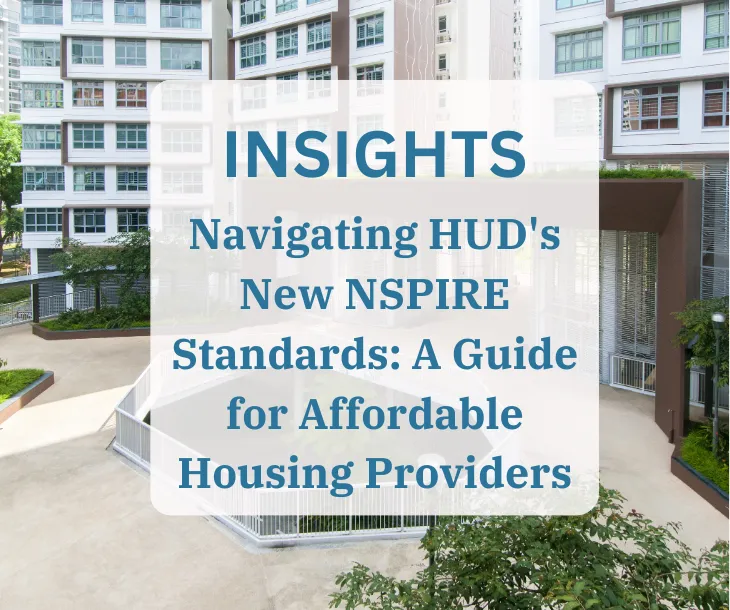
Navigating HUD's New NSPIRE Standards: A Guide for Affordable Housing Providers

Navigating HUD's New NSPIRE Standards: A Guide for Affordable Housing Providers
As a seasoned affordable housing construction consultant, I've witnessed the industry's evolution firsthand. The recent introduction of HUD's National Standards for the Physical Inspection of Real Estate (NSPIRE) marks a significant shift in how public housing properties are assessed and maintained. Understanding these new standards is crucial for ensuring your properties meet the highest quality standards and remain eligible for federal funding.
What are the NSPIRE Standards?
NSPIRE is a comprehensive set of guidelines designed to streamline and improve the physical inspection process for HUD-assisted housing. By consolidating existing standards, NSPIRE aims to provide a clearer, more consistent framework for assessing property conditions.
Key Changes Introduced by NSPIRE
Enhanced Focus on Health and Safety: NSPIRE places greater emphasis on identifying and addressing health and safety hazards. This includes factors like mold, lead paint, and structural integrity.
Streamlined Inspection Process: The new standards aim to simplify the inspection process, making it more efficient for both property owners and inspectors.
Increased Transparency: NSPIRE provides more transparency into the inspection process, allowing property owners to better understand the criteria used to assess their properties.
Greater Flexibility: While NSPIRE introduces new standards, it also offers more flexibility in certain areas, allowing for innovative approaches to maintenance and rehabilitation.
How NSPIRE Impacts Your Property
The NSPIRE standards have significant implications for property owners. Failure to meet these standards can result in reduced funding, increased maintenance costs, and even loss of federal funding. To ensure your property is in compliance, it's essential to:
Conduct Regular Inspections: Conduct thorough inspections of your property to identify potential issues before they become major problems.
Prioritize Maintenance: Implement a proactive maintenance plan to address issues promptly and prevent them from escalating.
Stay Informed: Keep up-to-date on the latest NSPIRE guidelines and best practices.
Seek Expert Guidance: Consider consulting with a qualified affordable housing construction consultant to help you navigate the NSPIRE standards and develop a comprehensive compliance strategy.
The Role of a Construction Consultant
A skilled construction consultant can be a valuable asset in helping you meet the NSPIRE standards. They can provide expert guidance on:
Assessing Property Condition: Identifying areas of concern and developing a plan to address them.
Developing a Maintenance Plan: Creating a customized maintenance schedule to ensure ongoing compliance.
Navigating the Inspection Process: Preparing for inspections and addressing any issues raised.
Securing Funding: Assisting with applications for funding to support necessary improvements.
Conclusion
The NSPIRE standards represent a significant shift in the way public housing properties are evaluated. By understanding these standards and taking proactive steps to ensure compliance, you can protect your property's value, maintain federal funding, and provide a safe and healthy living environment for your residents.
Learn more about how Property Plus Construction and our team of experts can assist you on your next project by clicking here. Complete the short form and one of our team members will call you to schedule a consultation.
